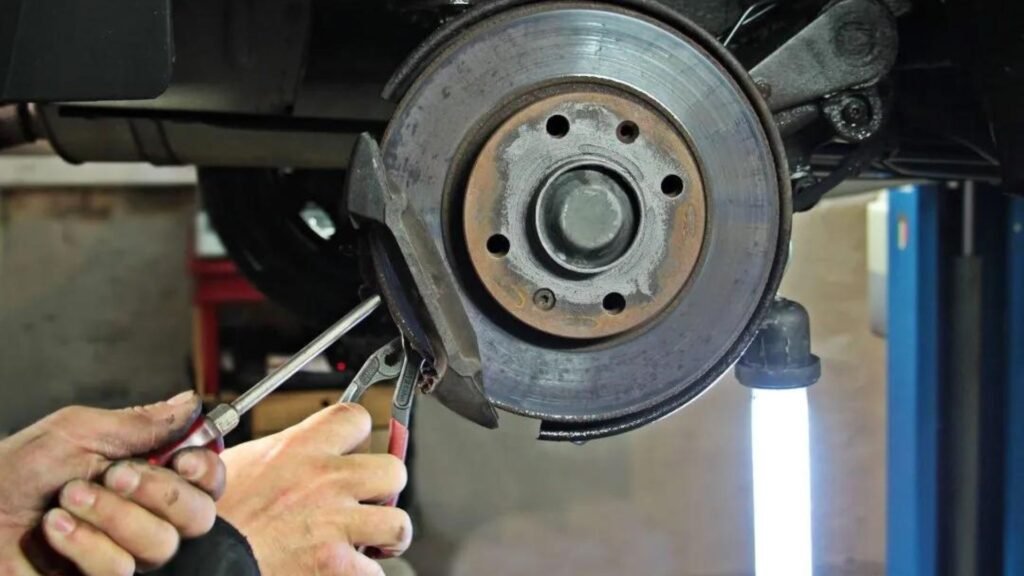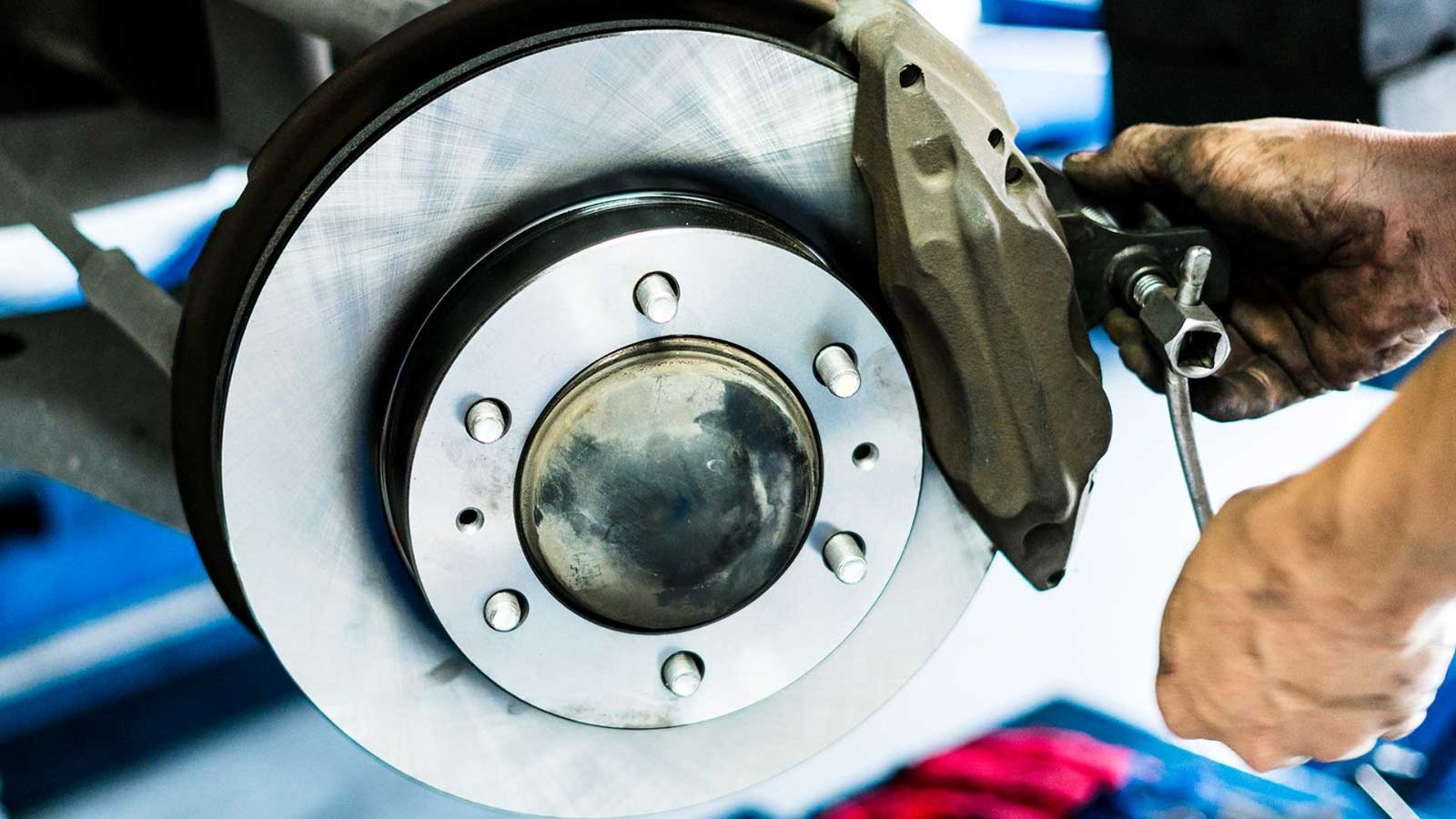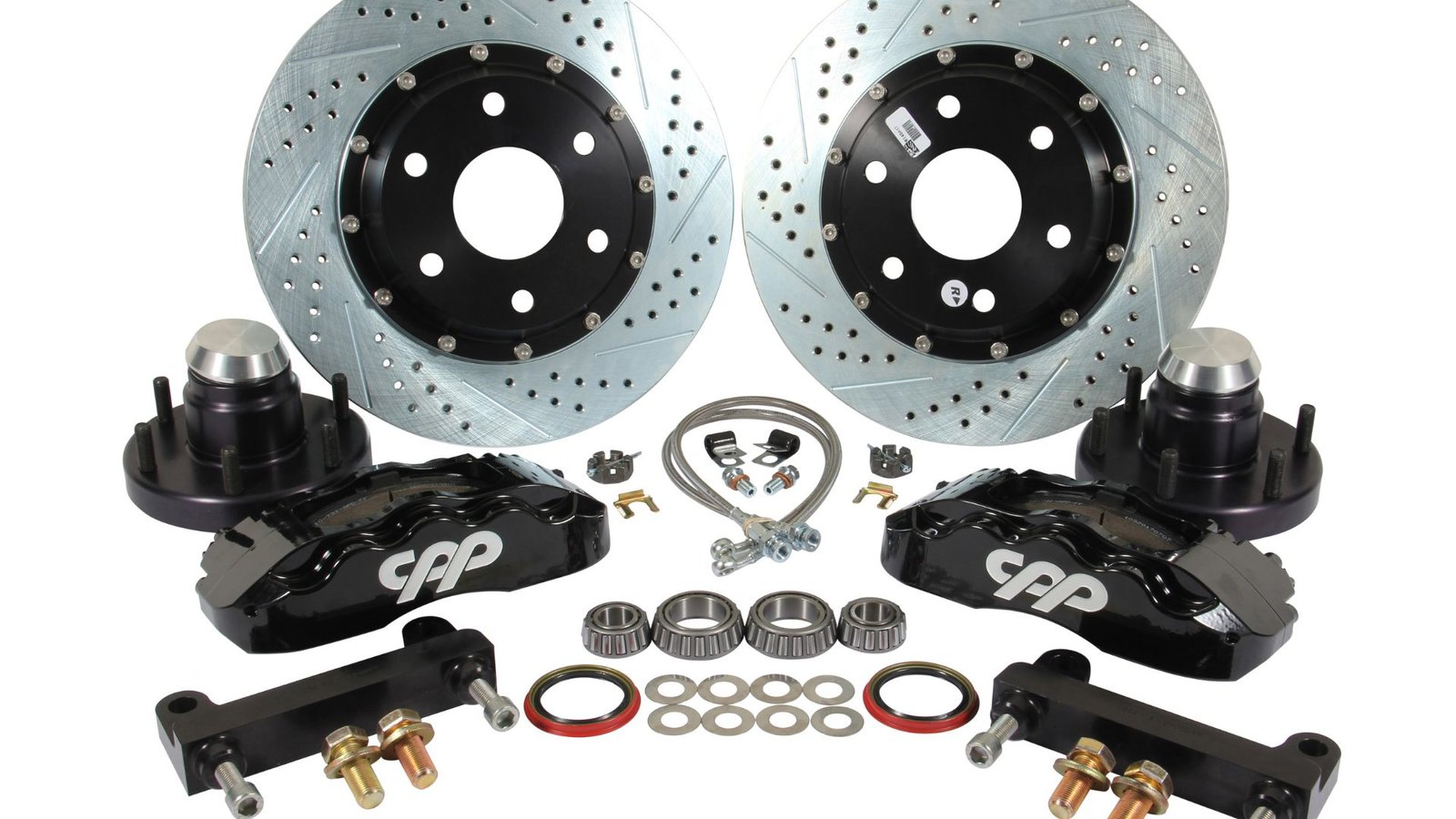Brakes are a crucial component of vehicle safety and performance. Proper maintenance of your brakes ensures they work effectively and can help prevent costly repairs and unsafe driving conditions. In this guide, we’ll cover essential brake maintenance tips to keep your braking system in top shape and ensure your safety on the road.

Regular Inspections
Check Brake Fluid Levels
Why It Matters: Brake fluid is essential for the hydraulic system that powers your brakes. Low brake fluid levels can lead to decreased braking performance and potential brake failure.
How to Check: Locate the brake fluid reservoir, usually found near the back of the engine bay. Check the fluid level against the “MIN” and “MAX” marks on the reservoir. If the level is low, top it up with the appropriate type of brake fluid.
Inspect Brake Pads and Rotors
What to Look For: Brake pads should be inspected regularly for wear. Worn pads may produce a squealing noise or reduced braking performance. Check the thickness of the pads and look for wear indicators.
Rotors: Inspect the rotors for grooves, scoring, or warping. If the rotors are damaged or excessively worn, they may need to be resurfaced or replaced.
Examine for Leaks
Finding Leaks: Leaking brake fluid can indicate a problem with the brake lines or master cylinder. Look for signs of fluid on the ground beneath your vehicle or around the brake lines and master cylinder.
Action: If you notice any leaks, have them addressed promptly by a professional to prevent brake failure.
Cleaning and Lubricating
Clean Brake Components
Importance of Cleaning: Dust, dirt, and debris can accumulate on brake components, affecting their performance. Regular cleaning helps maintain smooth operation and reduces brake noise.
How to Clean: Use a brake cleaner to spray the brake pads, rotors, and calipers. Avoid using oil-based cleaners, as they can damage brake components.
Lubricate Moving Parts
Why Lubrication Matters: Proper lubrication of brake caliper slides and pins ensures smooth movement and prevents sticking.
How to Lubricate: Apply high-temperature brake lubricant to the caliper slides and pins. Avoid getting lubricant on the brake pads or rotors.
Regular Replacements
Replace Worn Brake Pads
When to Replace: Brake pads should be replaced when they are worn down to 3 millimeters or less. Worn pads can reduce braking effectiveness and damage the rotors.
How to Replace: Follow your vehicle’s service manual for instructions on replacing brake pads. If you’re unsure, have a professional perform the replacement.
Check and Replace Rotors
Maintaining Rotors: Rotors should be replaced if they are significantly worn, warped, or scored. Regularly measure rotor thickness to ensure it is within manufacturer specifications.
Replacement: If rotors are damaged, they should be replaced or resurfaced by a professional. Ensure new rotors match the specifications for your vehicle.
Update Brake Fluid
When to Change: Brake fluid should be replaced every 2 to 3 years or as recommended by your vehicle manufacturer. Old or contaminated brake fluid can affect braking performance and cause corrosion.
How to Change: Follow the manufacturer’s guidelines for changing brake fluid. It often involves bleeding the brake system to remove old fluid and air bubbles.
Driving Habits
Avoid Hard Braking
Smooth Braking: Frequent hard braking can accelerate brake wear and reduce the lifespan of your brake components. Aim for smooth, gradual braking to extend the life of your brakes.
Use Engine Braking
Technique: Engine braking, or using the engine to slow down the vehicle by downshifting, can reduce the strain on your brakes. This technique helps maintain control and reduces brake wear, especially on downhill slopes.
Professional Inspections
Schedule Regular Brake Checks
Why Professional Inspections Are Important: Regular inspections by a professional mechanic ensure your braking system is functioning correctly and safely. Have your brakes checked at least once a year or according to your vehicle’s maintenance schedule.
Address Issues Promptly
Timely Repairs: If you notice any unusual noises, vibrations, or changes in braking performance, have your brakes inspected immediately. Early detection and repair can prevent more significant problems and ensure your safety.
Conclusion
Brakes Maintenance is vital for safe and reliable vehicle operation. Regular inspections, proper cleaning and lubrication, timely replacements, and mindful driving habits all contribute to effective brake performance. By following these essential maintenance tips and scheduling professional checks, you can ensure that your braking system remains in optimal condition, providing you with safety and confidence on the road.




